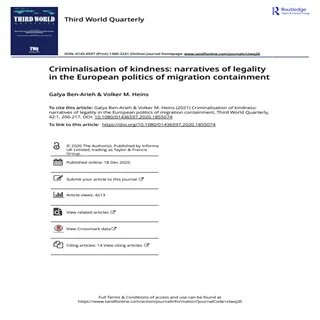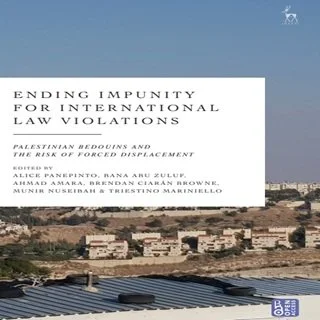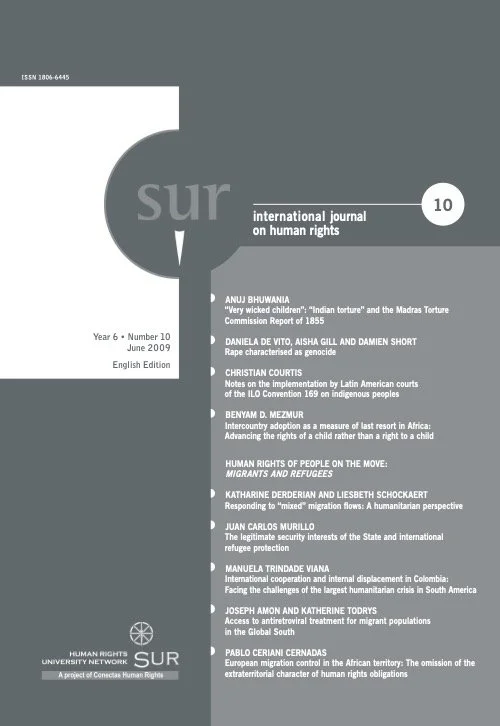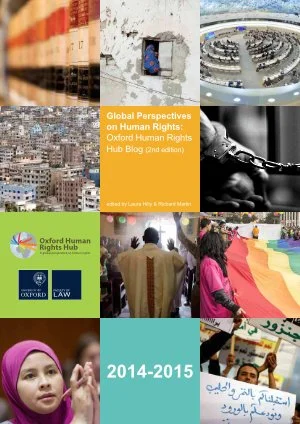By Galya Ben-Arieh and Volker M. Heins
This article explores the emergence of the crime of migrant smuggling and its legitimising narratives as tools of global migration management. We examine the ways in which the language of ‘migrant smuggling’ was introduced into and then lifted out of the context of international law and recontextualised to serve the purposes of migration management. The main consequence of this fusion of law, narrative, and policy is the definition of the legality of actors and actions along the migration routes across the Sahara, the Mediterranean and Europe. We examine the conflict between two dominant narratives of legality: the smugglers’ narrative vs the rescue narrative. Laws designed to protect people are being turned against the people they were ostensibly designed to protect. We argue that the smuggler narrative facilitates policies whereby wealthy states, under the pretence of law, contain migration from the South within the broader framework of a divisive global politics of life. Since these policies are implemented through bribery, blackmail, and brute force, they are displaying the ugly face of global migration governance without contributing in any way to a solution of the problems driving migration in the current global environment
Third World Quarterly 2021, Vol. 42, No. 1, 200–217Criminalisation of kindness: narratives of legality in the European politics of migration containmentGalya Ben-Arieh a and Volker M. Heins










